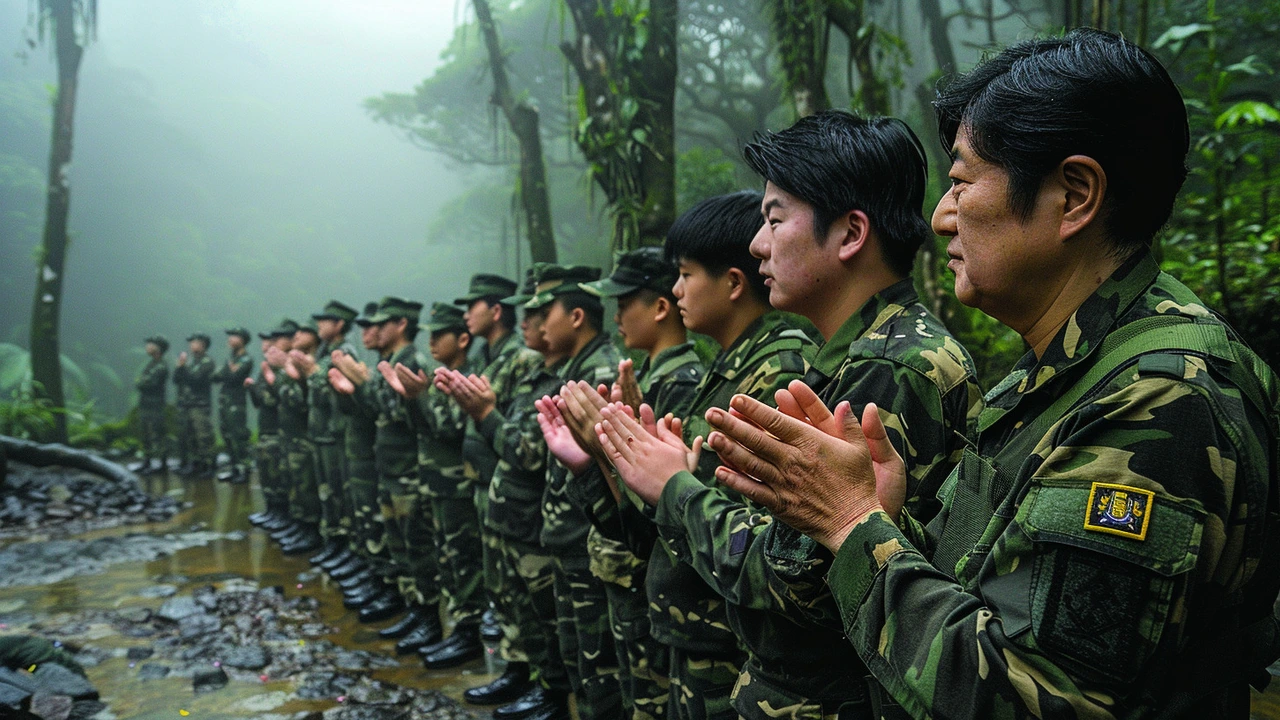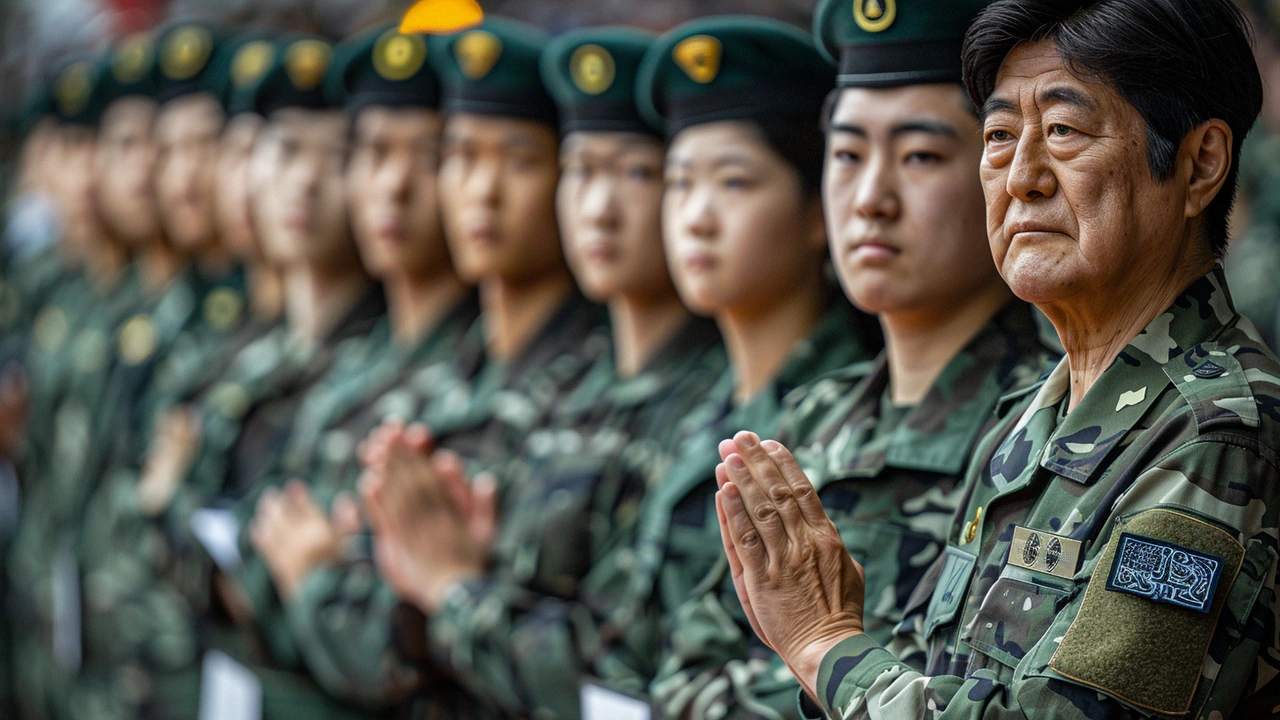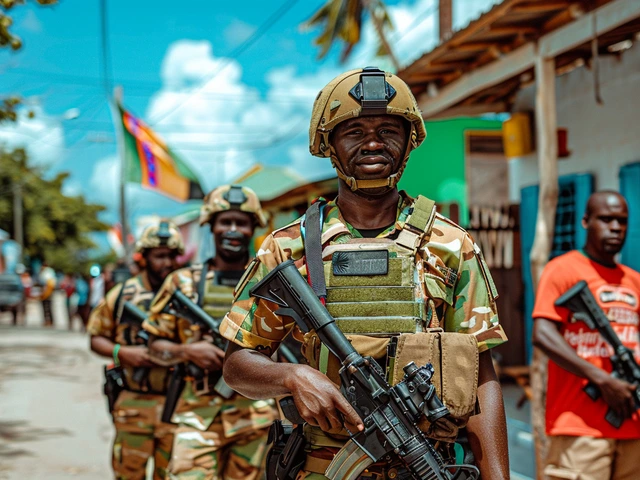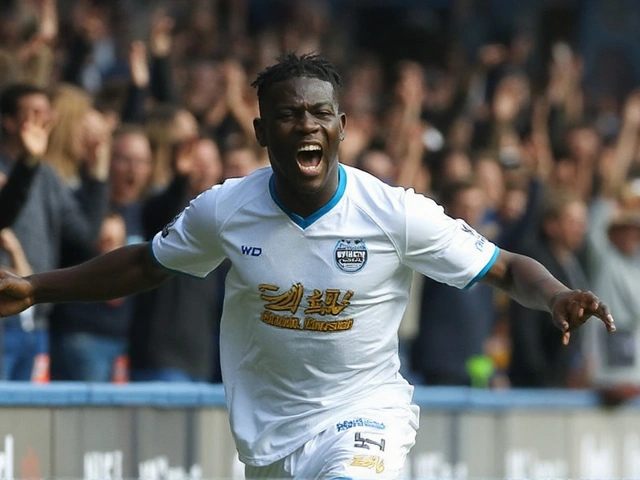Introduction
The relationship between China and Taiwan has always been fraught with tension and complexity. The recent inauguration of Taiwan's new president, Lai Ching-te, has exacerbated this historical friction. China has launched a series of military drills around Taiwan as a stern response to Lai's leadership, highlighting their dissatisfaction and forewarning of potential future escalation.
Military Drills: A Show of Force
In a significant display of military might, China has begun two days of intensive drills surrounding Taiwan and its outlying islands. These exercises involved dozens of fighter jets, many armed with live missiles, flying perilously close to Taiwanese airspace. Such actions serve as a dramatic physical manifestation of China's disapproval of Lai Ching-te and his Vice-President, Hsiao Bi-khim, who both took office recently.
Beijing's aggressive posturing is seen as a 'strong punishment' aimed at the forces within Taiwan pushing for independence. The drills not only serve as a warning to Taiwan but also to external players who may be contemplating support for Taiwanese independence. This inflammatory reaction follows President Lai's inaugural speech, in which he implored China to halt its military and political threats and to recognize Taiwan's right to exist as its own entity.
Taiwan's Response and Domestic Dynamics
Lai Ching-te's administration has to navigate through a volatile period marked by Beijing's demonstrative opposition. Beyond external pressure from China, the new leadership also contends with domestic challenges. Internally, Taiwan's political landscape is also experiencing turbulence. The ruling Democratic Progressive Party (DPP), which Lai belongs to, is under scrutiny from opposition parties such as the Nationalist Kuomintang (KMT) and the Taiwan People's Party. These parties are advocating for legislative reforms that could significantly shift the balance of power within Taiwan's government.
Despite these internal and external pressures, President Lai has remained resolute. In his speech, he called for unity and resilience from the Taiwanese people. He emphasized the importance of standing against Beijing’s coercion while still pursuing peaceful relations. His administration aims to strike a balance between asserting Taiwan’s independence and managing diplomatic relations with China.
Beijing's Perspective
From Beijing's vantage point, Lai Ching-te is perceived as a 'dangerous separatist.' Chinese officials have accused him of sending 'dangerous signals' through his rhetoric and policies, which they believe to be aimed at solidifying Taiwan's independence. China's primary concern is the potential for Lai’s administration to embolden pro-independence sentiments, thereby destabilizing the region further.
The military drills are part of a broader strategy to intimidate and dissuade Taiwanese efforts towards self-governance. Beijing's response should be seen within the context of its long-standing 'One China Policy,' which views Taiwan as an inseparable part of China. Any moves towards formal independence are met with severe opposition from the Chinese government.
The Global Implications
The situation draws global attention, with numerous countries closely monitoring the increasingly fraught relationship between China and Taiwan. International players, particularly the United States, have vested interests in the stability and autonomy of Taiwan. The United States has historically supported Taiwan through arms sales and diplomatic backing, creating another layer of complexity in Sino-Taiwanese relations.
Tensions in the Taiwan Strait also have broader implications for regional security in East Asia. Neighboring countries like Japan and South Korea are keeping a vigilant eye on the developments, aware that any military conflict could spill over into a larger regional crisis. The potential for escalation poses a significant threat to international peace and security.
The Path Forward
Navigating these turbulent waters will be one of President Lai's most daunting tasks. His administration needs to bolster national defense, ensure economic stability, and maintain the resolve to stand against external pressure while being open to diplomatic engagements. Striking this delicate balance is crucial for Taiwan's future.
On the other hand, China's actions reflect its broader geopolitical ambitions and its resolve to prevent any fragmentation of its claimed territory. The international community plays a vital role in mediating this conflict, emphasizing the need for peaceful dialogues while upholding international laws and norms.

Conclusion
The unfolding drama between China and Taiwan sets the stage for significant geopolitical maneuvering. President Lai Ching-te's leadership faces a formidable test both from within and outside the country. As China continues its military drills, the world watches closely, hoping for a resolution that ensures stability and peace in the region. The next steps taken by both Taipei and Beijing will undoubtedly have lasting impacts on the international stage.







faye ambit
May 24, 2024 AT 17:33 PMThe inauguration of President Lai Ching‑te serves as a reminder that political legitimacy is not merely a ceremony but a focal point for competing narratives of identity and sovereignty. From a philosophical perspective, the tension between the Chinese claim of indivisibility and Taiwan's assertion of self‑determination reflects a deeper dialectic between collectivist historicism and individualist autonomy. The recent drills underscore that power, when projected through military means, is often a language of intimidation aimed at reshaping the moral calculus of the other side. Yet the cost of such displays extends beyond immediate strategic signaling; it reverberates through the fabric of regional stability, the psyche of ordinary citizens, and the jurisprudence of international law. One might argue that the true measure of a nation's strength lies not in the thunder of jet engines but in its capacity to sustain a peaceful, prosperous society under the weight of external pressure. In this vein, Lai's call for unity can be interpreted as an ethical invitation to cultivate internal resilience rather than resort to reactionary posturing. The history of cross‑strait relations is littered with missed opportunities for dialogue, each failure deepening the abyss of mistrust. When both sides invest in narrative warfare, the space for constructive engagement contracts, leaving room only for coercive gestures. Moreover, the involvement of external powers such as the United States adds a layer of strategic complexity that risks turning a bilateral dispute into a proxy arena for great‑power rivalry. The prospect of escalation, while seemingly remote, remains a non‑zero probability that must be factored into any long‑term security calculus. It is therefore incumbent upon regional actors, including Japan and South Korea, to articulate clear red lines while encouraging diplomatic channels. A sustained commitment to multilateral institutions, whether through the UN framework or regional bodies, could provide a platform for de‑escalation. Ultimately, the path forward demands a delicate balance: a firm stance against coercion coupled with an openness to dialogue that respects the agency of the Taiwanese people. Only by honoring both the principle of self‑determination and the pragmatic need for stability can the region hope to avoid a catastrophic miscalculation. The international community, while vested in its own interests, must also recognize that peace in the Taiwan Strait is a shared responsibility, not a zero‑sum game.
Subhash Choudhary
June 4, 2024 AT 03:33 AMJust watching the news and thinking how crazy it gets every time a new leader steps in. China’s drills feel like a flex, but honestly it just adds more noise to an already loud situation. I guess it’s the usual power‑play, nothing new, just a lot of jets and headlines.
Ethan Smith
June 14, 2024 AT 13:33 PMThe recent military exercises around Taiwan illustrate a clear escalation in strategic posturing. While the drills are presented as a punitive measure, they also serve to demonstrate operational readiness. It is crucial for observers to note the precision of language used by both sides, as diplomatic phrasing can significantly influence regional perceptions.
Gerald Hornsby
June 24, 2024 AT 23:33 PMWow, the drama of geopolitics never stops – all that thunder and lightning, and here we are just scrolling! :)
Evelyn Monroig
July 5, 2024 AT 09:33 AMLook, the whole "drills" thing is just a thinly veiled threat. Beijing is desperate to keep its narrative alive, and they’ll use any pretext, even a "dangerous separatist" label, to justify intimidation. This isn’t about defense; it’s about control, plain and simple.
Hina Tiwari
July 15, 2024 AT 19:33 PMi feel for the people on both sides, this kind of tension is hard on everyday folks. it must be scary seein those jets flyin low, but also hopeful that diplomats keep pushin for peace. stay safe everyone!!
WILL WILLIAMS
July 26, 2024 AT 05:33 AMYo, love the energy in Lai’s speech! The world needs that fire‑starter vibe to keep the conversation lit and the region buzzing with positive change.
Barry Hall
August 5, 2024 AT 15:33 PMInteresting point. :)
abi rama
August 16, 2024 AT 01:33 AMIt’s encouraging to see leaders call for unity in the face of pressure. Staying balanced and hopeful can truly shape a more resilient future for Taiwan and its neighbors.
Megan Riley
August 26, 2024 AT 11:33 AMGreat insight, absolutely!,, I think it’s vital, you know, that every nation-especially those near fraught Strait-embraces dialogue, and, of course, keeps the channels open, no matter what!,, Let’s hope for calm, peace, and continued cooperation.
Lester Focke
September 5, 2024 AT 21:33 PMIn assessing the current strategic environment, one must recognize the interplay of historical claims and contemporary geopolitical imperatives. Beijing's articulation of the "One China" principle, coupled with demonstrative force, reflects an effort to enforce a hegemonic narrative that tolerates no deviation. Conversely, the nascent administration in Taipei seeks to assert sovereign agency while navigating complex diplomatic encumbrances. A rigorous analysis demands that scholars consider not only the overt militaristic displays but also the underlying doctrinal motivations that drive such actions. Ultimately, prudent policy formulation should be predicated upon a nuanced comprehension of both power projection and the normative frameworks that govern state behavior.